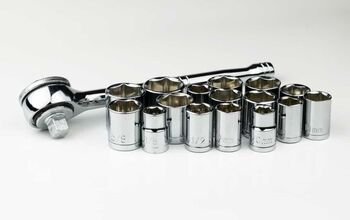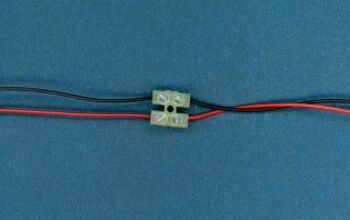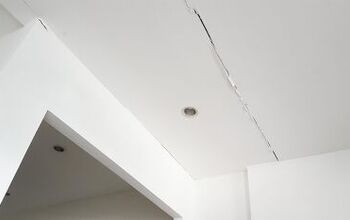How To Dissolve Baby Wipes In A Septic Tank

Although some are listed as flushable, it is often a common misconception that baby wipes should not be flushed down the toilet. However, if it has already happened, is there any way to dissolve baby wipes in the septic tank?
You cannot dissolve baby wipes in your septic tank with any chemical or product available on the market (at the time of writing). Baby wipes are created using synthetic polymers that form a durable cloth, and they take a long time to break down. You can have them pumped out and refrain from flushing them.
Flushing baby wipes down the toilet can result in a number of plumbing problems and will directly impact the comfort and safety of your entire home. In most cases, the only way to remove baby wipes from a septic tank is by snaking or by enlisting the help of a professional. To avoid any harmful effects on your septic system, never flush baby wipes down the toilet.
Do You Need a Septic Tank Cleaning or Pumping Service?
Get free, zero-commitment quotes from pro contractors near you.

How to Dissolve Baby Wipes in Septic Tank
Put simply, you should not attempt to dissolve baby wipes in your septic tank, or even in your toilet. Baby wipes are designed to be extraordinarily durable and can be nearly impossible to break down in water alone. While their durability does a great job at keeping your baby clean, it makes them unsuitable for flushing down the toilet.
Other than bodily fluids, toilet paper is strictly the only item that should be flushed. It is specially designed to break down quickly and easily after being expelled down the drain. Toilet paper’s strategic design was created with both your home and plumbing in mind.
Standard toilet paper typically takes about 24 hours to dissolve, which is ideal. Anything that takes longer than a full day to disintegrate can clog your drain and even your whole septic tank. If you have significant build up around your septic tanks filter, you could potentially face thousands of dollars in repairs.
How Does a Septic Tank Work?
Commonly used in rural areas without access to centralized sewer systems, septic systems are wastewater treatment structures that exist underground. A conventional septic system is usually comprised of a septic tank and a drainfield, or soil absorption field. More specifically, this is how the typical septic system functions:
- All water exits your home through one main drainage pipe and into a septic tank.
- Your septic tank is a water-tight container, buried underground, and is usually made of fiberglass, polyethylene, or concrete. Its primary purpose is to hold the water long enough for the solids to settle on the bottom and form as sludge, while grease and oil float to the top.
- The liquid wastewater, or effluent, will then exit the septic tank into the drainfield.
- The drainfield, or soil absorption field, is a shallow, enclosed, excavation laid into unsaturated soil. Pretreated wastewater is deposited through pipes onto porous surfaces, allowing it to filter through the soil. The soil’s job is to accept, treat, and disperse the wastewater, eventually discharging to groundwater.
- Finally, the wastewater infiltrates into the soil, removing harmful viruses, nutrients, and bacteria naturally.
While you may already be aware of whether or not you have a septic tank, there are some tell-tale signs that you do. These signs include the fact that your home uses well water, your neighbors have a septic system, the waterline that comes into your house does not feature a meter, or your water bill shows a “$0 Sewer Amount Charged.”
Why Can’t You Flush Baby Wipes?
While many baby wipes, and even wet wipes, claim to be flushable, this isn’t necessarily the truth. Over time, they will dissolve, however, they can take weeks or even months to completely disintegrate in your sewer system. If you use these wipes on a consistent basis, as most parents use baby wipes, your septic tank will not be able to keep up with the demand.
This issue is made significantly worse by the fact that baby wipes can cling to surfaces. If you have roots or other protrusions inside of your septic system, the wipes will stick. The best course of action is to not flush them in the first place and dispose of your baby wipes by a different means.
What Happens When You Flush Baby Wipes?
When baby wipes are flushed down the toilet, they can quickly cause blockages in sewer pipes along with major plumbing issues in either your home’s septic tank, or community sewer system. One common problem caused by flushing inappropriate items is what is known as ‘fatbergs.’ Fatbergs are coagulated masses of fat and debris that form inside septic systems and can create major issues in your septic tank.
If you’ve accidentally thrown a baby wipe, or another foreign item, down into your toilet, the best thing to do is try to fish it out. In some instances, an unwound metal hanger can be effective at removing wipes in your drain. By keeping baby wipes out of your drains you are doing your part to protect your home from blockages, or other potential issues with your septic system.
Items You Should Never Put in a Septic Tank
Although septic tanks come with a number of advantages, they require much more care than conventional, centralized sewage systems. One of the best ways to keep your septic tank maintained is to avoid throwing unsuitable items down your drains. In addition to baby wipes, these five things should never be put into your septic system:
- Medications: Whether it’s prescription drugs, or standard over-the-counter medicines, you should avoid throwing any type of medicine down the drain. Your septic tank contains essential bacteria for naturally breaking down waste. Introducing medications into the tank can disrupt the balance of bacteria and cause major issues. Not mention, it will also pollute the surrounding groundwater.
- Food items: Put simply, solid food waste can clog your septic system. Instead, dispose of all food items in the trash or a compost pile.
- Traditional toilet paper: You should avoid throwing conventional toilet paper into your septic system and you should especially steer clear of any toilet paper that claims to be “extra soft.” Instead, you should opt for toilet paper that is designed to biodegrade and dissolve quickly. Next time you’re at the store, look out for toilet paper brands that establish themselves as being “septic-safe.”
- Chemical cleaning products: Although drain cleaning products can be effective on minor clogs, they can do major harm to your plumbing and are especially bad for septic systems. Similar to medications, chemical agents can disrupt the balance of bacteria in your tank. When you have a septic system, you should also limit the amount of household cleaners you flush down your drains including bleach, toilet bowl cleaners, and all-purpose cleaning products.
- Other waste items: It is crucial that you keep small trash items and debris from entering your septic tank. Doing this will help prevent clogging or your tank filling up too fast. Some waste items to avoid include, paper toils, dental floss, cat litter, q-tips, and tissues.
In addition to the items listed above, you should also limit your use of the garbage disposal when possible. When you’re on a septic system, garbage disposal can do much more harm than good.
How to Remove Baby Wipes from Septic Tank
Although you should never flush baby wipes down the toilet, the damage may already be done. In this case, the wipes will stay with you and start to accumulate at the bottom or cling to the walls of your septic tank.
If you have baby wipes in your septic tank, the only way to get rid of them is to contact a professional. A certified plumber will remove the baby wipes by pumping your septic tank, which is recommended to be done every three to five years anyway.
Do You Need a Septic Tank Cleaning or Pumping Service?
Get free, zero-commitment quotes from pro contractors near you.

Wrapping It Up
Whether you have a septic tank or not, baby wipes should never be flushed down the toilet. They are incredibly strong materials that will have a difficult time breaking down in the sewer system. If you already have baby wipes in your tank and are looking for a removal technique, you should contact a professional right away. Although it may be pricey to remove them, it will help ensure the health and safety of your home.

Jessica considers herself a home improvement and design enthusiast. She grew up surrounded by constant home improvement projects and owes most of what she knows to helping her dad renovate her childhood home. Being a Los Angeles resident, Jessica spends a lot of her time looking for her next DIY project and sharing her love for home design.
More by Jessica Stone



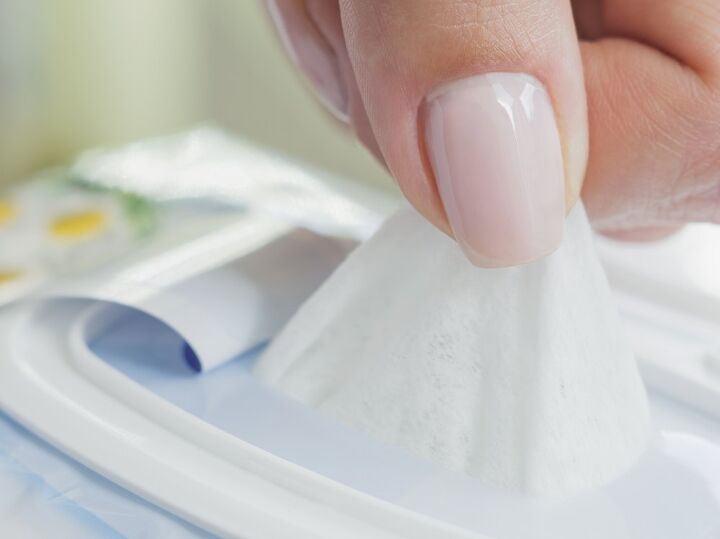
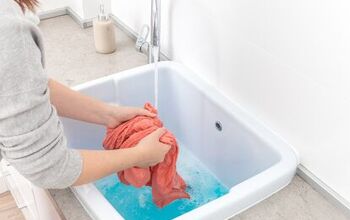





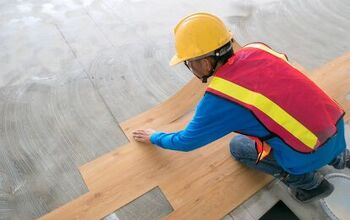

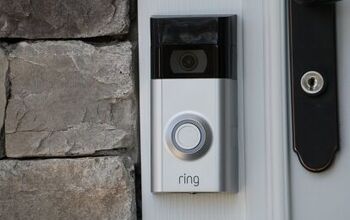
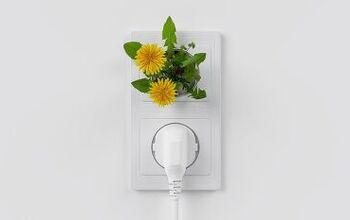
![The 10 Best Table Saws - [2022 Reviews & Buyer's Guide]](https://cdn-fastly.upgradedhome.com/media/2023/07/31/9070645/the-10-best-table-saws-2022-reviews-buyer-s-guide.jpg?size=350x220)



